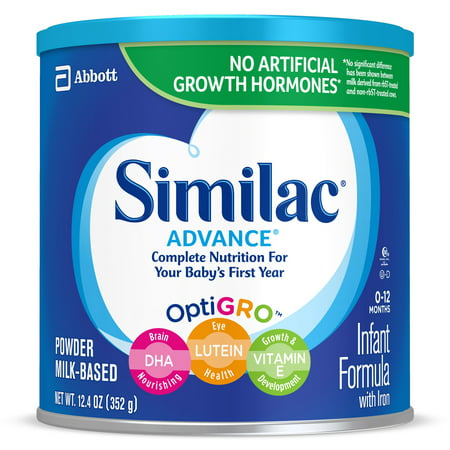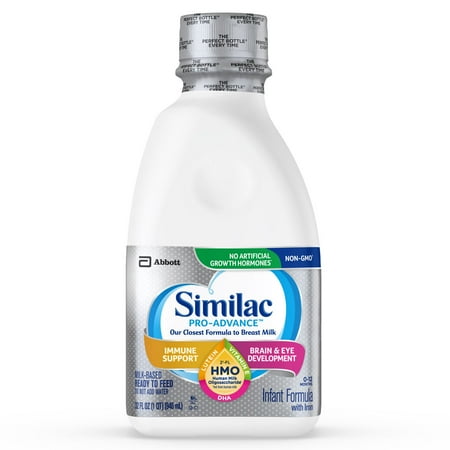Similac Pro-Advance Infant Formula with Iron, with 2′-FL HMO, For Immune Support, Baby Formula, Powder, 30.8 ounces
Similac Pro-Advance with 2’-FL human milk oligosaccharide* offers immune aid through encouraging immune cells to release protecting proteins in amounts greater like the breastfed infant. It’s also the first main little one system without a synthetic growth hormones†. Parents stated‡ a reduction in fussiness, gassiness, crying, and spit-up after simply 1 day of feeding, and the development changed into maintained at the same time as feeding the formulation. Our unique combination of DHA, Lutein, and Vitamin E is important for supporting assist infant’s mind and eye improvement. You can trust Similac, the number one little one components logo chosen by mothers§ and the number 1 brand fed in hospitals. *Not from human milk. † No considerable distinction has been shown among milk derived from rbST-treated and non-rbST-handled cows. ‡After switching to Similac Pro-Advance. §Total US little one formula, all retailers as of 3/31/2018, Nielsen statisticspick stores, The SNAP (Supplemental Nutrition Assurance Program) call is a service mark of the U.S. Department of Agriculture. USDA does now not advocate any items, offerings, or establishments.

#1 BRAND FOR IMMUNE SUPPORT*: Similac Pro-Advance is the primary little one formula with 2’ FL HMO** designed to be closer than ever to breast milk. (*Based on Pediatrician Recommendations & IQVIA ProVoice Survey one year finishing February 2020; **no longer from human milk)NO ARTIFICIAL GROWTH HORMONES: Similac is the primary main little one method emblem and not using a artificial boom hormones† (†No big difference has been shown between milk derived from rbST-dealt with and non-rbST-treated cows)REDUCED FUSSINESS: Parents said‡ reduced fussiness, gassiness, and spit-up after 1 day (‡After switching to Similac Pro-Advance)TRUSTED: Similac is the #1 toddler method logo chosen via mothers* and the #1 brand fed in hospitals (*overall US infant formula all outlets as of 3/31/18, Nielsen information)BRAIN & EYE DEVELOPMENT: Our special combo of DHA, Lutein, and Vitamin E – vitamins also discovered in breast milk – facilitates support child’s standard boom and mind for this Item Get a FREE $25 eGift Card whilst shopping for four Similac Pro-Advance 30.8oz Cans! Get Offer ✕





Reviews
There are no reviews yet.